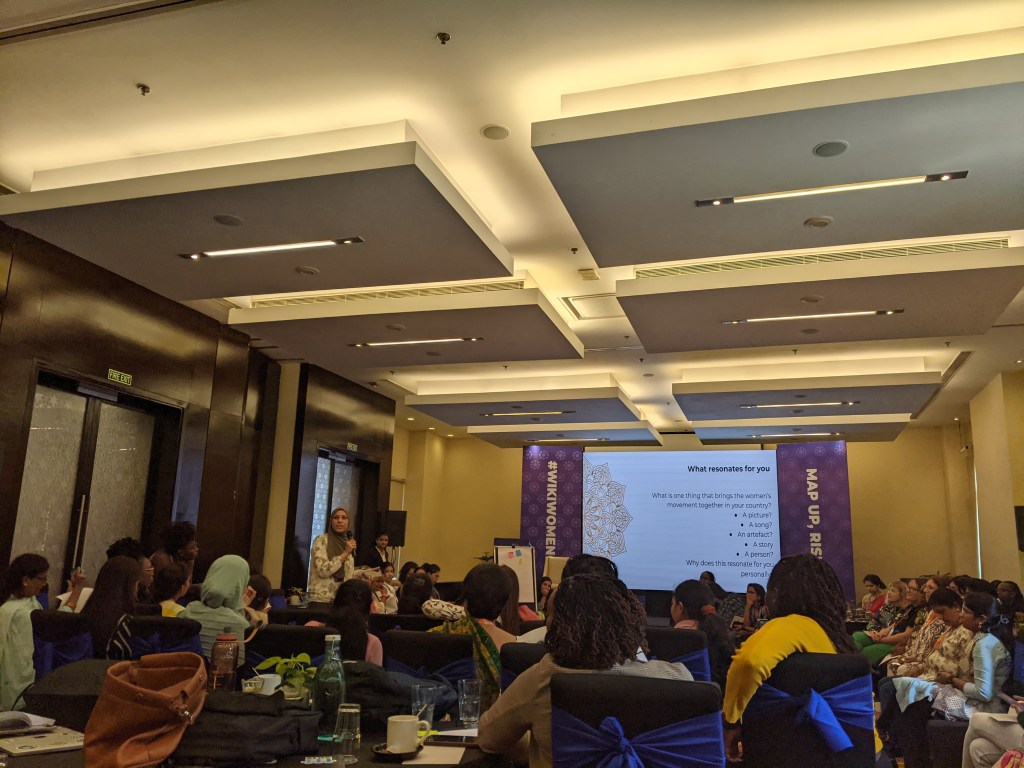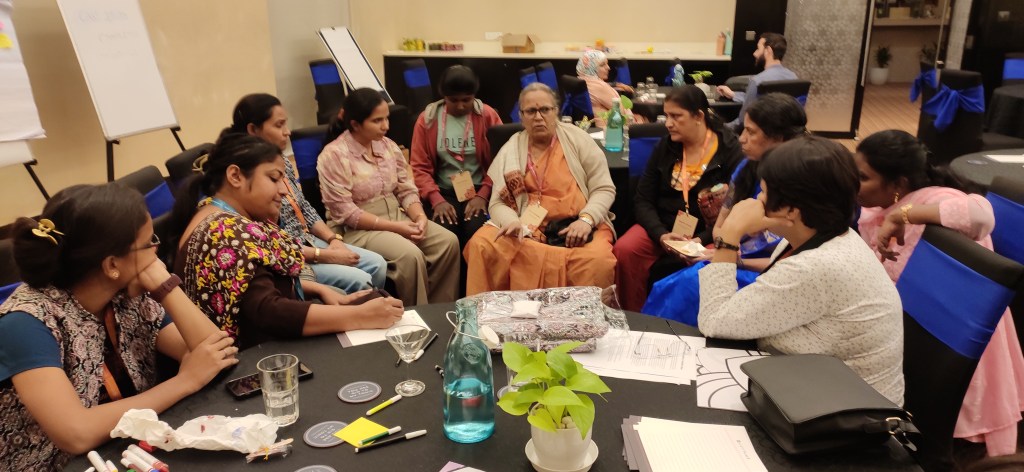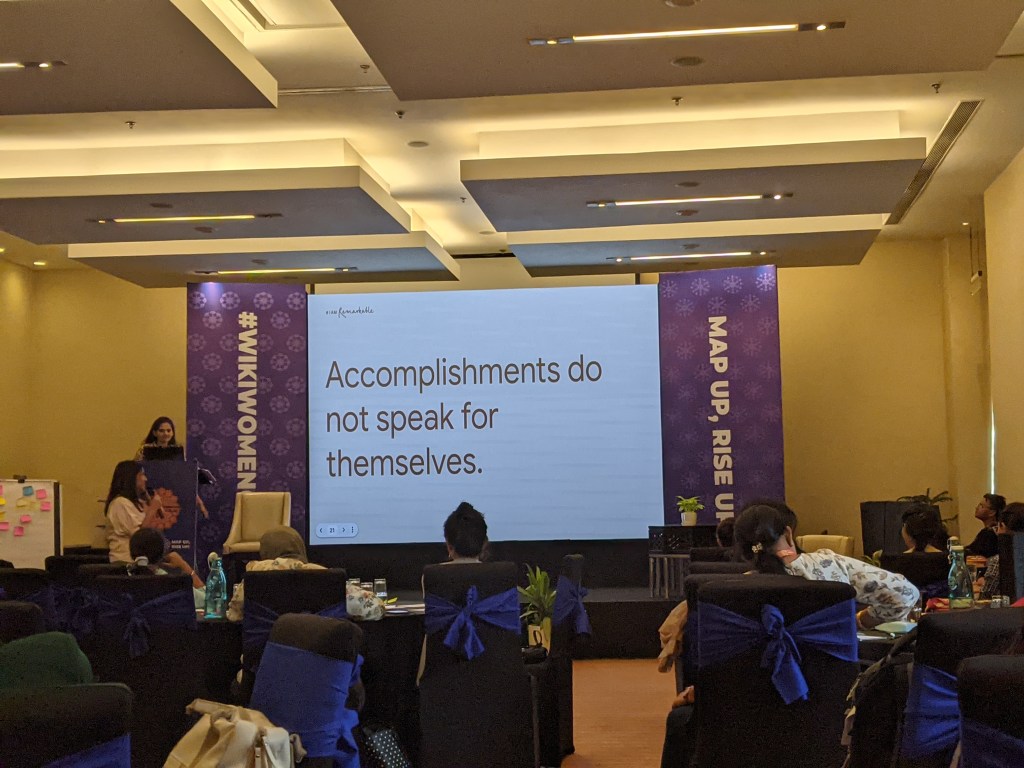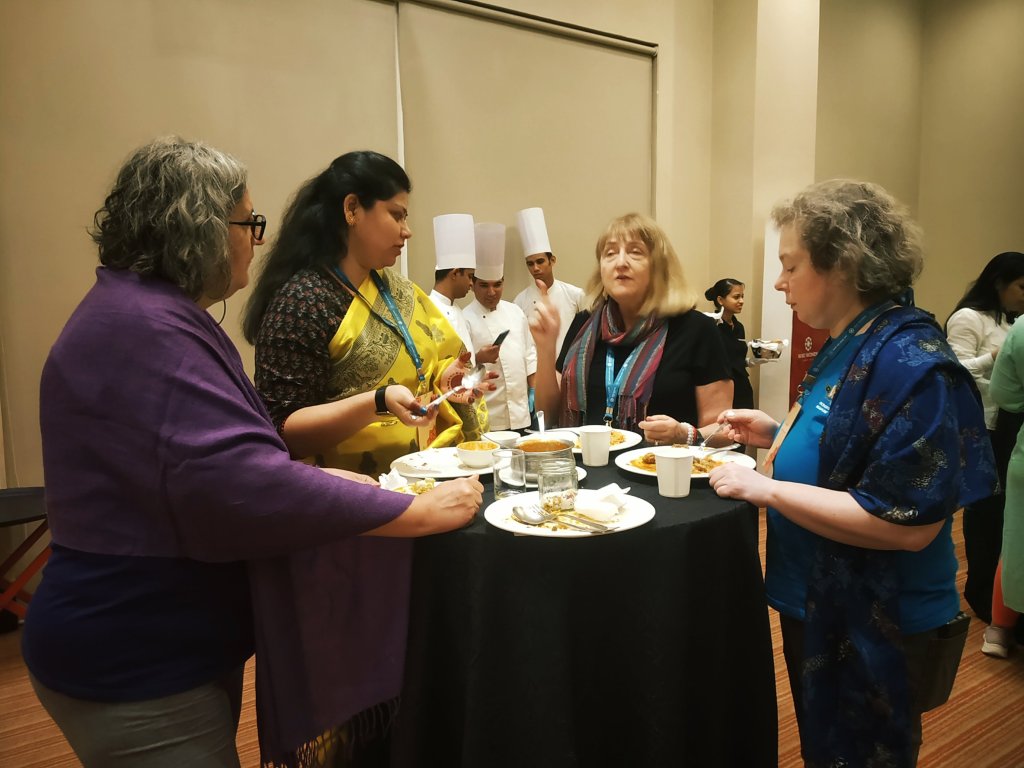Roundtables were catalysts for change throughout history.
From King Arthur’s legendary knights to revolutionaries seeking justice and progress, roundtables were the conduit of discussion, collaboration, and collective action.
Roundtables gave people an equal footing; an opportunity to be heard and valued; an opportunity to confront issues, than other people.
I was reminded of this symbolism while Yop Rwang Pam was leading the Solidarity Exercise program on the first day of the WikiWomenCamp 2023.
While the words of the beautiful Savage Daughter song played in the background, I observed from a vantage point how each soul in the room hummed in unison and arose to share their stories, the mind’s eye playing a kaleidoscope of past, present, and the future.
Each story was different; yet a common thread held them: the question of the self and its identity.
It was cathartic. Stories usually are. What was this?
This was a culture in the making.

Maffeth.opiana, CC BY-SA 4.0, via Wikimedia Commons
Cultures are multidimensional.
This here was a culture created through shared meanings, identities, and emotions, underlined with the determination to bring change. Such experiences go beyond the predefined programmatic agenda of any gathering.
You had to be there to feel the charged atmosphere.
This was not an isolated occurrence. Over the course of 4-5 days, I was a witness to many such cultural roundtables, some of which have been penned here.
While the meaning of culture certainly evolved with each experience or interaction, the bottomline remained the same: to live and experience a vibrant culture.
The next symbolic cultural roundtable was that of Nitesh Gill’s debriefs. As I exited the lift to go towards the dinner area on the first day, a group caught my eye.
In one corner, huddled together, were our participants from South Asia, with Nitesh leading the group, in a deep serious discussion going over the events of the day, resolving questions and sharing feedback.
This happened on all the program days.
Imagine the dedication and tenacity of this diverse group; to not only attend the 9 am to 6 pm program, but to stay back for another couple of hours to plan the future strategy of their respective communities and the South Asia movement collectively.
As a dedicated volunteer myself, there was a profound realisation, and I had nothing less than immense respect and appreciation for what the communities managed to achieve in the past, with scant resources, and eagerness to see what the future holds.

Sumita Roy Dutta, CC BY-SA 4.0, via Wikimedia Commons
This was the culture of determination and progress, a culture thriving on collective commitment to continuous growth and improvement.
The shared drive had the capability to transform into a dynamic force of change.
Then, there was the I’m Remarkable session, led by Iswarya Balakrishnan and Kathita Goel. Anna Vainer created the program in 2016 as an “initiative to empower people to celebrate their achievements in their personal and professional lives.”
There were a few moments of charged silence when we were told to write “I am remarkable because ……………………………”
I looked at the attendees, each looking at the other, not because there wasn’t anything remarkable about us, rather we were perplexed about how to give voice to our remarkableness (or, if we even should).
Almost no one’s pen moved. The workshop facilitator’s voice brought us back to the present, and few started scribbling copiously. Later, some read out their “I am remarkable” statements, while the rest of us were still pondering.
The silence in the room reinforced the need for such workshops, the need for a culture of self-reflection.
Rooted in mindfulness and self-awareness, the culture of self-reflection would encourage us to introspect, analyse, and understand our thoughts, actions, and its impact.

Maffeth.opiana, CC BY-SA 4.0, via Wikimedia Commons
My biggest takeaway was that we need to be our biggest cheerleader because if we won’t, who would?! How could we expect people to recognise our remarkableness if we couldn’t or wouldn’t?!
Next was food.
A story or a reflection of culture is incomplete without food. It is said that a different bond is created once food is shared. Is that an universal feeling? I certainly felt so.
If any ice persisted, they certainly melted over breakfasts, lunches, dinners and the in-betweens 😉 after all, food was and is an excellent conversation starter.
Food became a character in itself; like a live audience in a play breaking the fourth wall; a reflection of cultural interaction, where stories simmered in the glimmer of shared experiences.
This is my favourite image.

Aliva Sahoo, CC BY-SA 4.0, via Wikimedia Commons
We were engaging in an enthralling discussion about the Women-in-Red program.
Food is a culture in itself.
Cliched as it may sound, the camp unfolded as a symbolic cultural roundtable that transcended visible and invisible boundaries.
I heard, understood, and lived stories, experiences, and the nuances of perspectives.
These recollections were just a few of many; affirming the strength of culture in the digital landscape of knowledge-sharing: the factor that brought us all together.

Can you help us translate this article?
In order for this article to reach as many people as possible we would like your help. Can you translate this article to get the message out?
Start translation